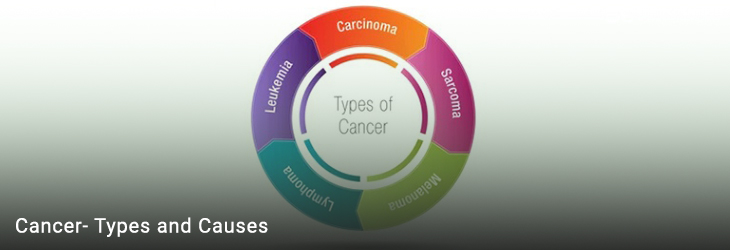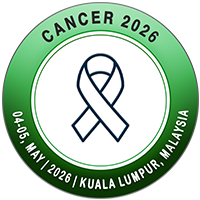Track: Types and Causes of Cancer

The "Types and Causes of Cancer" session offers a
comprehensive overview of the various types of cancer and the factors that
contribute to their development. This session will explore the various types of
cancer, their characteristics, and the risk factors that increase the
likelihood of cancer occurrence.
Exploring Different Types of Cancer
Cancer is not a single disease but a collection of related
diseases characterized by uncontrolled cell growth. Each type of cancer behaves
differently, requiring tailored approaches to treatment and management. This
session will cover:
Carcinomas: The most common form of cancer; these grow from
the epithelial cells lining the body's outside and inside. Colorectal,
prostate, lung and breast cancers are a few examples.
Sarcomas: Cancers that arise from connective tissues such as
bone, muscle, fat, and cartilage. These are less common but can be particularly
aggressive.
Leukemias: Cancers of the blood and bone marrow, where the
body produces an excessive number of abnormal white blood cells. This session
will also discuss the differences between acute and chronic forms of leukemia.
Lymphomas: Cancers that begin in the lymphatic system, which
is a crucial part of the immune system. This session will explore the two main
types: Hodgkin lymphoma and non-Hodgkin lymphoma.
Melanomas: A type of skin cancer that originates in the
pigment-producing melanocytes. While less common, melanoma is known for its
potential to spread rapidly if not treated early.
Neuroendocrine tumors: Cancers developing from cells that,
upon receiving a signal from the neurological system, release hormones into the
bloodstream. These are possible in the gastrointestinal system and lungs, among
other organs.
Identifying the Causes of Cancer
Understanding what causes cancer is essential for prevention and early detection This session will dive into the various causes of cancer,
focusing on:
Genetic Factors: The role of inherited genetic mutations and
family history in increasing cancer risk. Participants will learn about
specific genetic syndromes that predispose individuals to certain types of cancer.
Environmental Factors: How exposure to carcinogens such as
tobacco smoke, radiation, and certain chemicals can lead to DNA damage and
cancer development.
Lifestyle Factors: The impact of diet, physical activity,
alcohol consumption, and obesity on cancer risk.
Hormonal Imbalances: The influence of hormones on the growth
of cancers such as breast, ovarian and prostate cancer, and how hormone
replacement therapy and contraceptives can affect cancer risk.
Scientific Highlights
- Cancer Research Therapy and Autoimmune Diseases
- Cancer Biology and Biomarkers
- Types and Causes of Cancer
- Hematology in Cancer
- Organ Specific Cancer
- Cancer: Awareness, Lifestyle and Nutrition
- Oncology Subspecialties
- Advancements in Cancer Imaging Technologies
- Cancer Genomics and Epidemiology
- Cancer and Immunology
- Tumor Pathology and Cancer Cytopathology
- Cancer Pathophysiology
- Neuro and Radiation Oncology
- Stem Cell, Gene Therapy and CAR-T Cell Therapy
- Prevention and Palliative Care in Cancer
- Rehabilitation of Cancer Survivors
- Cancer Screening and Diagnosis
- Clinical Trials of Cancer
- Cancer Treatment and Traditional Therapies
- Complementary and Alternative Cancer therapy
- Artificial Intelligence in Cancer Research
- Future Technology in Oncology
- COVID-19 and Its Impact on Cancer


